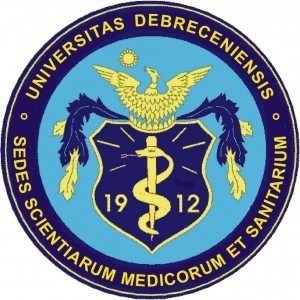Photos of university / #brownu
The Master of Public Health program is dedicated to developing skilled professionals who are committed to improving the health of communities by translating rigorous scientific research into sound, evidence-based public health policy and practice.
Brown is an internationally recognized leader in public health research, and the University is home to nine nationally renowned public health research centers. The MPH program has an unusually high faculty-to-student ratio. Students have a great deal of interaction with faculty, who are accessible, approachable, and encouraging of student involvement in critical projects. Innovative curriculum requirements, such as community and analytic internships, make the program academically rigorous while providing unparalleled access to ongoing research and immersion in public health practice.
Core Courses
|
Biostatistics and Applied Data Analysis |
|
Students must take one of the following two sequences: Sequence 1 Biostatistics and Data Analysis I (PHP 2507) & Biostatistics and Data Analysis II (PHP 2508) |
|
Or |
|
Sequence 2 Principles of Biostatistics and Data Analysis (PHP 2510) & Applied Regression Analysis (PHP 2511) & One of the following four courses: Medicare: A Data Based Policy Examination (PHP 2410E) Measurement Issues in Health Care (PHP2019) |
|
Epidemiology |
|
Students must take one of the following two courses: Introduction to Methods in Epidemiologic Research (PHP 2120) Or Foundations in Epidemiologic Research Methods (PHP 2150) |
|
Environmental Health Courses |
|
Students must take one of the following three courses: Current Topics in Environmental Health (PHP 1700) Or Topics in Environmental and Occupational Epidemiology (PHP 2220E) Climate Change and Human Health (PHP1710) Global climate change is occurring and these changes have the potential to profoundly influence human health. This course provides students with a broad overview of the diverse impacts of projected climate change on human health, including effects of changing temperatures, extreme weather events, infectious and non-infectious waterborne threats, vector-borne disease, air pollution, the physical and built environment and policies to promote mitigation and adaptation. Students will explore multiple sides of controversial issues through lively and informed class discussions, writing exercises, and participation in a series of end-of-term debates.
|
|
Social and Behavioral Health Courses |
|
Students must take one of the following three courses: Principles of Health Behavior and Health Promotion Interventions (PHP 1740) Or Designing, Implementing and Evaluating Public Health Interventions (PHP 2360) Or |
|
Health Services Administration Courses |
|
Students must take one of the following two courses: Comparative Health Care Systems (PHP 1100) Or The U.S. Health Care System: Case Studies in Financing, Delivery, Regulation and Public Health (PHP 2400) |
| Internship |
|
Students must take the following course: Public Health/Community Service Internship (PHP 2070) |
| Research Methods |
|
Students must take one of the following courses: Clinical Trials (PHP2030) Or Survey Research Methods (PHP 2040) Or Qualitative Methods (PHP2060) Or Behavioral Research Methods (PHP2300) Or Intro to GIS (GEOL1320) |
Electives
MPH students may register for core courses and approved electives throughout their course of study. However, students should not restrict themselves to these courses. Additional courses at Brown University and the Medical School may count toward the MPH degree, with approval. In addition, students may request that up to four graduate/medical courses, taken previously or concurrently with their Brown MPH enrollment, be counted toward the thirteen course requirement to graduate from the MPH Program.
Fall Courses
- PHP 1070, The Burden of Disease in Developing Countries
- PHP1350, Prisoner Health Inside Out
- PHP 1530, Case Studies in Public Health: The Role of Governments, Communities and the Professions
- PHP 1540, Alcohol Use and Misuse
- PHP1710, Climate Change and Human Health
- PHP 1740, Principles of Health Behavior and Health Promotion Interventions
- PHP1854, The Epidemiology and Control of Infectious Disease
- PHP 1999, Public Health Nutrition: Concepts and Controversies
- PHP2025, Ethics of Global Public Health Engagement
- PHP 2030, Clinical Trials Methodology
- PHP 2170, Injury As A Public Health Problem
- PHP 2220B, Nutritional Epidemiology
- PHP2222, Genetics, Human Population and Diseases
- PHP 2240, Methods of Environmental Epidemiology
- PHP2250, Advanced Quantitative Methods in Epidemiologic Research
- PHP 2300, Research Methods in Behavioral Science
- PHP 2325, Place Matters: Exploring Community-Level Contexts on Health Behaviors, Outcomes and Disparities
- PHP 2340, Behavioral and Social Science Theory for Health Promotion
- PHP 2370, Etiology of Substance Use Disorders
- PHP 2400, The U.S. Health Care System: Case Studies in Financing, Delivery, Regulation and Public Health
- (If not taken to fulfill core requirement)
- PHP 2415, Introduction to Evidence-based Medicine
- PHP2425, Doing Public Health: Getting It Done in the Real World
- PHP2436, Conflicting Priorities: Prescription Profits & the Public’s Health
- PHP 2440, Intro to Pharmacoepidemiology
- PHP 2450, Quality Measurement and Improvement in Health Care
- PHP 2510, Principles of Biostatistics and Data Analysis
- PHP2520, Statistical Inference I
- PHP2530, Bayesian Statistical Methods
- PHP2550, Practical Data Analysis
- PHP 2601, Linear and Generalized Linear Models
- PHP2610, Causal Inference and Missing Data
- PHP2690D, Advanced Topics in Biostatistics: Practical Tools for Data Analysis
- PHP2690F, Statistical Computing
- PHP2980, Graduate Independent Study and Thesis Research (Full Credit)
- PHP 2985, MPH Independent Study for Thesis Preparation and Research (Half Credit)
- PLCY1700K, Health Policy Challenges
- BIOL2860, Molecular Mechanisms of Human Disease
- ECON 1360, Health Economics
- SOC 1550, Sociology of Medicine
- SOC2612, Geographic Information Systems and Spatial Analysis for the Social Sciences
Spring Courses
- PHP 1100, Comparative Health Care Systems
- (If not taken to fulfill core requirement)
- PHP1500, Global Health Nutrition
- PHP1600, Obesity in the 21st Century: Causes, Consequences and Countermeasures
- PHP 1680I, Pathology to Power: Disability, Health and Community
- PHP 1680N, Tobacco, Smoking, and the Evil Empire
- PHP1900, Epidemiology of Disorders and Diseases of Childhood and Young Adulthood
- PHP 1920, Social Determinants of Health
- PHP1964, Cancer Epidemiology and Prevention
- PHP2018, Epidemiology of Cardio-Metabolic Health
- PHP 2060, Qualitative Methods in Health Research
- PHP 2080, Public Health Law and Ethics
- PHP 2090, Scientific Writing in Public Health
- PHP 2130, Human Biology for Epidemiology
- PHP 2180, Interpretation and Application of Epidemiology
- PHP 2200, Advanced Methods in Epidemiologic Research
- PHP2220C, Perinatal Epidemiology
- PHP2220E, Topics in Environmental and Occupational Epidemiology
- PHP 2220H, Methodological Issues in the Epidemiology, Treatment and Prevention of HIV
- PHP2223, Statistical Genetics
- PHP 2230, Epidemiology of Infectious Diseases
- PHP 2260, Applied Epidemiologic Analysis Using SAS
- PHP 2310, Physical Activity and Public Health
- PHP 2330, Behavioral and Social Approaches to HIV Prevention
- PHP 2350, Economics of Medical Therapies: Health Policy and Practice
- PHP 2360, Designing, Implementing and Evaluating Public Health Interventions
- PHP2365, Public Health Issues in LGBT Populations
- PHP 2380, Health Communication
- PHP2390, Quantitative Methods for Behavioral And Social Sciences Intervention Research
- PHP 2410E, Medicare: A Data Based Policy Examination
- PHP 2420, Evaluating Public Health Programs and Policies
- PHP2429, Medicine, Public Health, Law and Policy
- PHP 2430, Analysis of Population Based Datasets
- PHP2490, Methods in Pharmacoepidemiology
- PHP 2501, Introduction to Multivariate Regression
- PHP 2511, Applied Regression Analysis
- PHP2560, Introduction to Statistical Computing
- PHP2580, Statistical Inference II
- PHP 2602, Analysis of Lifetime Data
- PHP 2603, Analysis of Longitudinal Data
- PHP 2980, Graduate Independent Study and Thesis Research (Full Credit)
- PHP 2985, MPH Independent Study for Thesis Preparation and Research (Half Credit)
- PHP2690A, Advanced Topics in Biostatistics
- PHP2690F, Statistical Computing
- BIOL1820, Environmental Health and Disease
- DEVL1802S, Human Security and Humanitarian Response
- PLCY2710, GIS and Public Policy
Requirements
- The online application for admission;
- Official transcripts for all undergraduate, graduate, or medical school academic work and GPA. Transcripts can be submitted to SOPHAS. (Details on how to send transcripts can be found here on the SOPHAS website). Note that for international institutions, SOPHAS will only accept evaluations obtained from World Education Services (WES ICAP). SOPHAS cannot accept any international transcripts other than the WES ICAP evaluation.
- Three letters of recommendation;
- Statement of Purpose and Objectives that describes your understanding of public health and commitment to pursuing a career in public health. Statement should explain the relevance of education and/or experience to pursue a career in public health.
- Graduate Record Examination (GRE): General test is required. Official GRE scores should be sent to SOPHAS using Brown SPH GRE reporting code 7765. The MCAT has been approved by the Graduate School as an acceptable alternative in lieu of the GRE.
- TOEFL/IELTS- All international applicants whose native language is not English must submit official scores from the Test of English as a Foreign Language (TOEFL) or International English Language Testing System (IELTS). Official TOEFL scores should be sent to both SOPHAS (TOEFL reporting code 5688) and Brown University Graduate School (reporting code 3094);
- A résumé;
- An application fee.
Interviews are not required as part of the application process. However, if applicants would like to visit the Brown campus to learn more about the MPH Program, this can be arranged through MPH & MS Programs Manager Diane Schlacter diane_schlacter@brown.edu .
Applications are reviewed on a rolling basis from January until May 1st, or until the class is filled. Applicants should apply by February 1 for the best chance of being offered scholarships and financial support.
Want to improve your English level for admission?
Prepare for the program requirements with English Online by the British Council.
- ✔️ Flexible study schedule
- ✔️ Experienced teachers
- ✔️ Certificate upon completion
📘 Recommended for students with an IELTS level of 6.0 or below.
Scholarships
Financial support is provided through merit-based assistantships and scholarships. We seek candidates who are intellectually curious, highly motivated, and committed to the study of public health. All aspects of your application are very important for the scholarship review process, including your personal statement, academic transcripts, standardized test scores, letters of reference, and resume. Applicants should apply by February 1st for the best chance of being offered scholarships and financial support.
MPH Program Partial Scholarships
MPH Program partial scholarships are available to a limited number of highly qualified part-time and full-time students. MPH Program partial scholarships cover up to 25% of the tuition costs. Applicants are considered for partial scholarship support as part of the admissions process.
MPH Global Health Scholars Program
The MPH Global Health Scholars Program is available to highly qualified first year MPH students with experience or interest in global health. The Scholars Program includes enhanced educational activities, travel opportunities, and a scholarship award equivalent to 25% of tuition costs, which can be applied toward tuition and health insurance fees. Scholars take at least three courses per semester, in addition to the summer internship.
The MPH Global Health Scholars Program enhances the educational experience of select Brown MPH students and provides these students with the opportunity to make important contributions to global health research and practice. Scholars are matched with faculty mentors and incorporate global health into their academic work in the summer internship, one of their fall courses and one of their spring courses during the first academic year. Scholars will be prepared to compete for several available Brown University summer travel funds for global health experience in the summer between the first and second years of the MPH Program.
Your admission materials will serve as the application for this Scholars Program. You are encouraged to expand in your personal statement why you would like to be considered for the MPH Global Health Scholars Program.
MPH Global Health Scholars are awarded for one academic year with the potential for renewal for a second year.
MPH Assistantships
MPH Assistantships are available for a limited number of highly qualified students. MPH Assistantships provide a monthly stipend and a partial scholarship award. First-year students awarded a Standard MPH Assistantship receive a monthly stipend and partial scholarship. The student works for the sponsor in public health research or practice during the summer internship, 20 hours per week during the academic year, plus one 40 hour week during the winter break.
Applicants are automatically considered for any available MPH assistantships as part of the admissions process. MPH assistantships are awarded for one academic year with the potential for renewal for a second year. Students awarded MPH assistantships take at least three courses per semester.
The number and type of MPH assistantships available varies each year depending on the number of sponsors. Past sponsors include research centers of the Brown University School of Public Health , the Rhode Island Department of Health, and other public health related organizations. When possible, the MPH assistantship is coordinated with the required internships and many students have been able to develop thesis projects with their assistantship sites.











